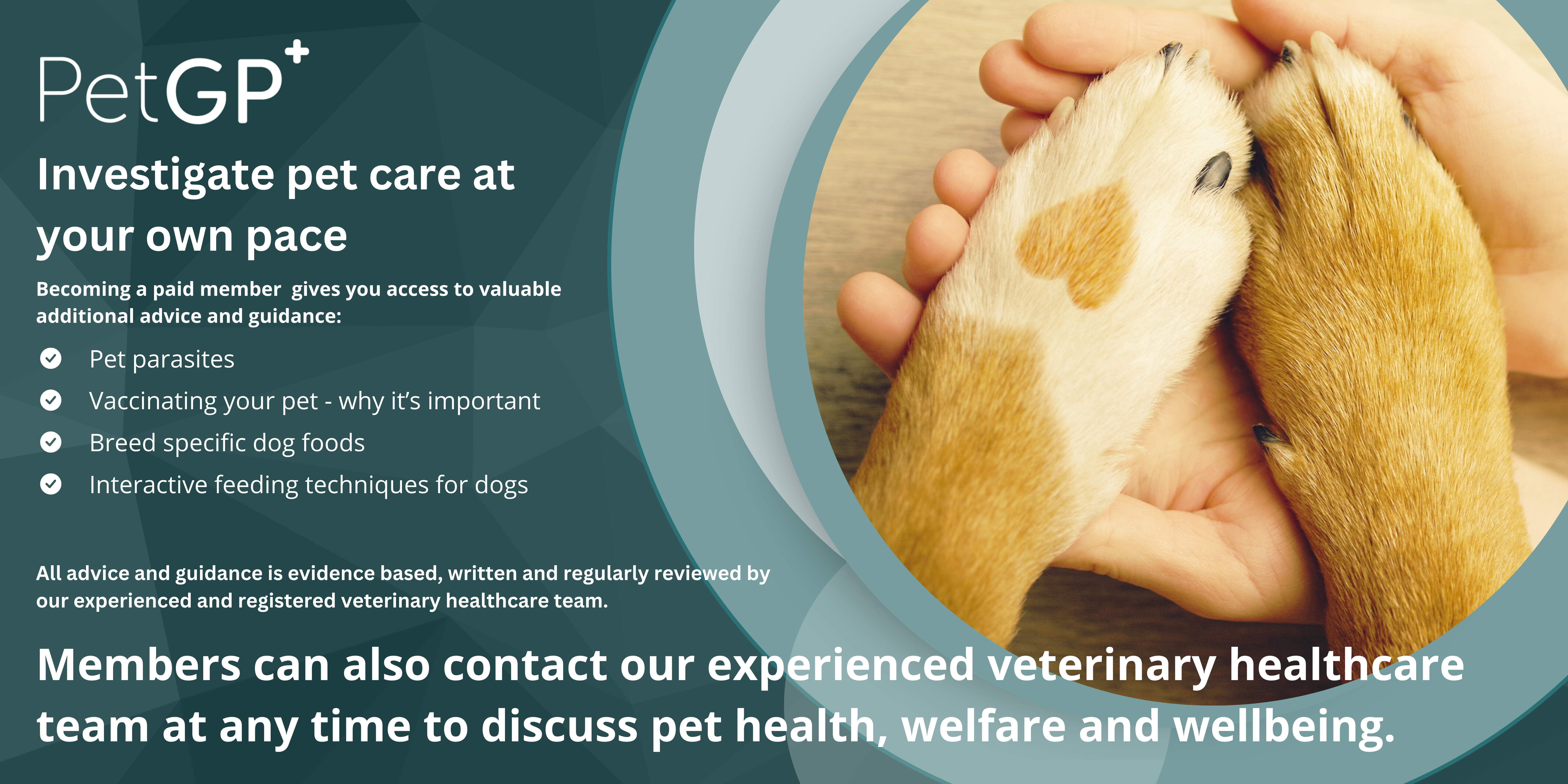How do I support my dog’s mental health?
Mental Health is a growing topic in human medicine. There is lots of information and support available regarding mental health problems. This also suggests ways in which we can support our mental health on a daily basis. Animals can also suffer with mental health problems. They can be much harder to diagnose, but there are lots of ways in which we can help our dogs. We all want to keep our dogs as happy and as healthy as possible. Caring for our dog’s mental health should be as important as looking after their physical wellbeing. There are ways that we can support our dog’s mental health on a day-to-day basis. There are also some more common mental health conditions.
There are many factors that can play into our dog’s mental health. All dogs have different personalities and some will be more at risk of developing mental health issues. As with all health problems, prevention is far better than a cure. Wherever possible, we want to create a daily environment for our dog that helps to keep them happy.
Suitable Environment
It is important that our dogs are housed in a suitable environment. Most dogs will spend most of their time in the home environment. This needs to be somewhere that they feel comfortable and safe. This allows them to cope with the stressors they may encounter in the outside world. Where should my dog live? is a question we should all consider.
It is important to provide environmental enrichment for your dog. This can take many forms; from toys, trickle feeders and puzzles, to play-time with yourself or with other dogs.
Through environmental enrichment, dogs are provided with choices, environmental changes, and mental challenges. This has been shown to have numerous reported benefits. These range from a reduction in stress behaviours to a decrease in abnormal and stereotypic behaviours (these are repeated, non-functional behaviours, that some vets see as similar to OCD in humans). Improved cognition, and reduced barking have also been reported. They have also been shown to lead to an increase in relaxation behaviours (e.g., resting, lying down, sleeping).
Generally, it is a good idea to offer your dog a range of toys and activities. Change and rotate them regularly to achieve maximum benefits. Stuffed food toys can be particularly useful as settling and relaxation activities – perhaps for when dogs need to be left at home, or settled in the evening.
Suitable Diet
It is important that we feed our dogs a complete and balanced diet to ensure they grow and stay healthy. There are many diets out there. What food should my dog eat? Is a very important question to keep them healthy.
There has been some research into specific diets that can help to support our dogs mental health, and even into different diets or supplements that can be used to treat certain mental health conditions. If your dog struggles with anxiety, aggression or hyperactivity, this may be something to discuss with your vet or with our team of nurses.
Ability to express normal behaviours.
It is important that our dogs are able to exhibit their full range of normal behaviours. This allows them to express their natural instincts and can help to eliminate boredom and frustration. What is appropriate behaviour?
If dogs are consistently prevented from expressing their normal behaviours, we can see a decline in their mental health. They may become frustrated and destructive, or they may start to develop abnormal, repetitive behaviours, known as stereotypies.
Interaction with other dogs
Dogs were originally pack animals. Most dogs, if appropriately socialised from a young age (more info here), will enjoy the company of other dogs. It is important that your dog has the opportunity to play and interact with other dogs on a regular basis. If you have more than one dog, then they are likely to fulfil this need very easily by playing with each. If not it can be a good idea to find other local dogs that you dog gets along with. Many dogs will play with each other at parks or whist out on walks. If your dog goes to a day-care or to a dog walker, they may have a chance for this then.
It is important to check with other owners first to make sure that their dog is friendly and happy to play. Always supervise your dog, and make sure they have plenty of space to move away from the interaction if they need to.
Staying healthy and free from disease
It is important not to overlook the relationship between physical and mental health. Just as in humans, a dog’s mental health is likely to deteriorate if they are unwell or in pain. Often changes in a dog’s behaviour or mental state can be an important sign that your dog is in pain, and vets often use behavioural signs to assist in their diagnosis of various health problems. There are many things to consider when we assess how we can keep our dogs healthy.
Equally, mental health problems, for example, stress and anxiety, can often cause physical disease. It has been shown in many species that prolonged stress can increase wound healing time, and cause immunosuppression. This is likely to be the case in dogs as well.
If your dog is unwell or develops abnormal behaviours, then it is important to contact a veterinary professional. They will always complete a full examination of your animal, and will take your dog’s behaviour and mental health into consideration as well.
Castration
Many male dogs are routinely castrated. This can help avoid a variety of problems, including unwanted litters and cancers in later life. However, behavioural impacts should also be considered when making this decision. Some behavioural problems may be decreased by neutering, but only if they have an underlying hormonal cause. These include; unwanted sexual behaviour, male-to-male dog aggression, and roaming or straying. However, neutering can make some dogs more nervous and less emotionally stable.
Unfortunately in all dogs’ lives, there are likely to be events that can cause a decrease in their mental health. Many of these are unavoidable, but there are ways to help.
Change
Whether you’re moving house, changing jobs, welcoming a new baby or new pet to the family or making any other changes to your dog’s life, many dogs can struggle to adjust. It’s important to try and keep as many things constant in your dog’s life as possible during these times. This might mean setting up a familiar bed with their own blankets and toys in a new house, or making sure to take time for some one-on-one attention and walks if there is a new arrival. For more tips and advice, talk to your veterinary team.
Stressful situations
Throughout the year there are many celebrations or events that can prove stressful for your dog. Fireworks and thunderstorms can be particularly worrying for your dog, but there are ways to help or even prevent these phobias.
Some dogs can find Christmas and Halloween stressful. Nervous animals might be frightened of the decorations or increase in visitors, and even confident dogs can find the festivities over-stimulating.
Visits to the vet can also negatively impact your dogs mental health. Whilst the vets and nurses will do everything they can to make each visit as calm and stress free as possible, there are additional ways you can help prepare your dog at home.
Aging
Just like in humans, as our dogs get older, they might start to struggle with arthritis, deafness, blindness, or even changes to their mental capacity. Some dogs may cope ok with these changes, especially if they are gradual, but others may become frustrated or unhappy. If your dog is approaching old age or is suffering from any of these issues, there are ways to help. Follow the specific links to find out more, or discuss with your veterinary team
Despite our best efforts, some dogs will unfortunately develop mental health problems during their lives. We will touch on a few of the common problems below and signs to look out for. If your dog starts to display any of these behaviours, make sure to contact your vet. Many of the symptoms can overlap with those of several physical diseases. It is important to rule these out before treating as a mental health condition.
Anxiety
The most common forms of anxiety in dogs are; general fearfulness (including fear of strangers and new places), sound sensitivity (to thunderstorms or fireworks, for example) and separation anxiety. Although some dogs may develop just one problem, dogs with an underlying nervous personality are more at risk of developing other anxiety problems.
Symptoms of anxiety include;
- Shivering and trembling
- Excessive barking
- Pacing
- Howling/crying
- Excessive panting
- Licking, chewing and drooling
- Seeming particularly clingy
- Hiding and avoiding contact
- Trying to escape
Depression
Dogs may show behaviours that mimic human depression, often following major changes in their lives. This may be the loss of family member or another pet, or a child leaving home. Sometimes these behavioural changes may be short-lived, but it is important to have your dog checked over by a vet, as they can easily be confused with symptoms of physical disease.
Symptoms may include.
- Low activity levels
- Loss of interest in normal activities
- Changes to eating or sleeping habits.
Compulsive behaviours or Stereotypies
Some dogs may develop repetitive behaviours which seem to have no obvious function. These often develop due to conflict or frustration, especially if this is prolonged.
Some examples of these behaviours include;
- Pacing
- Acral lick dermatitis
- Flank sucking
- Circling
- Incessant or rhythmic barking
- Fly snapping or chasing unseen objects.
- Sucking, licking, or chewing on objects (or owners)
- Licking the air
- Other forms of self-mutilation
Cognitive Dysfunction syndrome
Cognitive Dysfunction Syndrome (CDS) is a progressive neurodegenerative disorder, which has many similarities to Alzheimer’s in humans. It is seen in older dogs, and is different to the normal aging process.
CDS presents as;
- Disorientation
- Changes in social and environmental interactions (e.g. .becoming aggressive or fearful)
- Changes in the sleep/wake cycle
- Loss of learned behaviours (e.g. toilet training)
Unlike normal aging, this disease can be treated. It is important to contact your vet if your dog starts displaying any of these symptoms, especially to rule out any other possible causes.
Finally
Mental health is a complex area of medicine even in humans, and further complicated in dogs. Keeping dogs mentally healthy is important and trying to avoid situations that may trigger problems is a good idea. If events are unavoidable, then preparation is key to make the situation as easy as possible for the dog to cope with. If your dog does start to have problems, then please contact your vet or a registered animal behaviour professional for help and advice.





